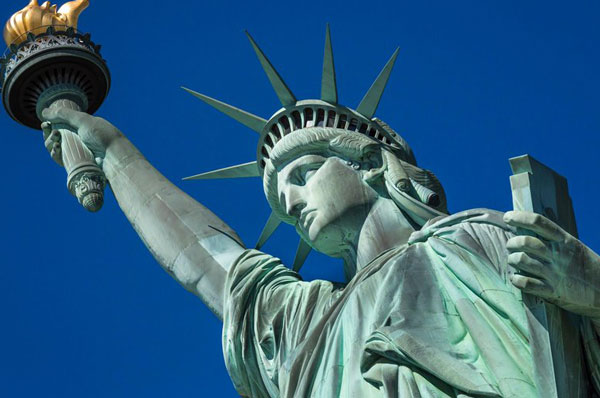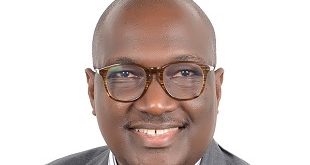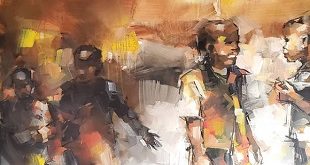
This column is a slightly edited version of a speech I gave at a conference of liberals in South Africa on May 24, 2017
By Andrew Mwenda
I want to argue that liberty is taking root in Africa. Not as fast as we would like. But this should not discourage us. Liberalism grows slowly, at an evolutionary pace. It is tyranny that grows faster, at a revolutionary pace. It is quick and easy to build a dictatorship because this requires the single-minded actions of an individual or small group commanding an all-powerful state. But it is hard and slow to build a liberal democracy because this requires the development of a set of traditions of fairness and justice within society over time.
Hence liberal traditions, although they need a state to defend and protect them, evolve out of society. Tyranny grows from the state, from the actions of a single powerful man (an Adolf Hitler or a Josef Stalin or an Idi Amin) backed by a powerful organisation (party or army). However it is not only evil men who threaten liberty. Neither is it (as Frederick Von Hayek suggested) only the actions of well-intentioned leaders whose actions are justified by immediate necessity. The danger to the cause of liberalsim in recent years has been utopian dreams of exporting it by force – witness Iraq, Libya, Afghanistan, Syria, etc.
Why we need to recognise the breadth of emerging liberties even as we doubt their depth
Strong men build personal dictatorships and this can lead to the establishment of order. However, attempts to export democracy by force have stimulated violence and terrorism. What we get is neither liberty nor order but anarchy. Liberal values take time to germinate and grow. So attempts to export liberty by force tend to force long-term trends to a premature conclusion. This has ignited illiberal forces of ethnic or religious intolerance within society leading to mass violence. This is because liberalism is not an ideal that can be exported and imposed on a society. Rather it is an ideal that grows under specific historic circumstances.
As Karl Popper argued, liberal principles are principles of assessing and if necessary modifying and/or changing existing institutions rather than of replacing existing institutions. Edmund Burke would have entirely agreed. Therefore, we need to see liberalism as an evolutionary, not revolutionary creed. Those of us who believe in liberal politics need to oppose attempts to impose democracy/freedom on other societies by force and other quick fixes through aid conditionality and threats of ICC.
Liberty has two aspects, one economic, the other political. The two are closely intertwined. Often the economic drives the political but this is not always the case. In rare circumstances the reverse has happened. The biggest influence on me was Hayek, especially his book, `The Road to Serfdom’. Western thought had grown to believe that economic and political freedoms were separable. It was thought and argued that one could, and indeed should, curtail economic freedom for the sake of economic security. Hayek set out to hit this argument on its head. He argued that there was a tight nexus between economic and political freedom and unfreedom. The road to serfdom in the economic sense was the road to totalitarianism in the political sense.
Coming to Africa, I am hopeful because over the last two and a half decades, we have witnessed the rapid expansion of the market system on the continent. Old ideologies of state control of the economy have given way to liberal economic policies – for the most part. These economic reforms are essential to the growth of liberty. Across our vast continent, state enterprises have been privatised, public monopolies have been disbanded and most sectors of the economy have been liberalised. Liberal economic reform has been more successful than political reform but this too has seen tremendous growth across most nations of Africa.
 The Independent Uganda: You get the Truth we Pay the Price
The Independent Uganda: You get the Truth we Pay the Price




1.The article is just okay.
2. The beauty with liberation of the social,political and economic sector iis that one can make a fair assessment of the performance of a state before and after reforms happened.
3.Many tragedies have occurred coz of the liberation of the social,religious,political and economic sectors in Africa:Has the liberation of these sectors benefited Africa and parts of the 3rd world yes and no e.g religious freedom especially in the Arab states is a total disaster that the world has never witnessed.Economical liberation in Africa has left the poor and their leaders in a state of confusion Lawyers draft business policies and clauses that dont favour their own country somehow coz Africans dont love reading,their govts are forced to sign business deals that are not favorable to the nation and Politically Africa has failed to manage elections coz losing one is a sign of weakness.
The old man of the clan is surely wearing out. Now that he has started to quote himself,like one Adhola who used to roam in this forum, we might sooner than later see a wind-up. Even the best dancers leave the floor.
It is Winnie who might be left with the visionary when others have hung their boots or is it gloves?
@ Rajab the Ekyapaa Mu Ngalo man: Some schools of thought believe that the land in Kayunga genuinely belongs to the people of west Nile coz during the religious war between xians (lugard)and Muslims in 1889, Muwanga hired his Nubian commandos probably they were rewarded with that land.
@Adhola hope u r still alive and kicking have you seen the mess Britain is heading for?This is coz of democracy i already told you that not every one should have a say when govts are making critical decisions and recommendations.Poor Therasa May has been in power for just 6 months but it looks like every one is blaming her for all the misfortunes that have befallen Britain like the terror attacks,London Tower fire and the Brexit embarrassment(In this era of globolization why would Britain want to be aloner?).
The Elections in Britain is a eye opener to all nations.Citizens put their leaders under alot pressure to perform e.g the referendum that led to Briteix :the British have discovered that they blundered so they are playing safe by blaming Ms May and not Boris Johnson for confusing them;Politics is not science where there must be a new innovation to register success.
@ Rwasubutare: How does one who is selected to make a presentation be wearing out?Do you know how much people pay to have Andrew present a paper?organizers of conferences are kept on their toes when they host great people like Andrew 1st of all they ensure that he travels 1st class and resides in a 1st class hotel .You and Kant should one day be made rapporteurs in conferences so that you get an idea of what transpires there.
Dear Andrew, by your example of privatisation as a means or sign of liberalisation , you shoot yourself in the foot. Privatisation in Africa was largely a dictate from IMF and world bank and not a steady progress as you insinuate. I do not agree that privatisation and liberalisation are synonymus.
Please read extract below from another source.
Much of the initial impetus for privatisation in Africa came from creditor institutions, as part of their push for structural adjustment. By 1998, some 34 African countries had World Bank project or programme financing agreements that included privatisations and three-quarters of World Bank loans or credits were conditional, in part, on privatising state enterprises.
Such conditions have provoked resentment from African governments and fed a popular public view that privatisation is basically creditor-driven, or a form of “recolonisation
Afro optimist all the way